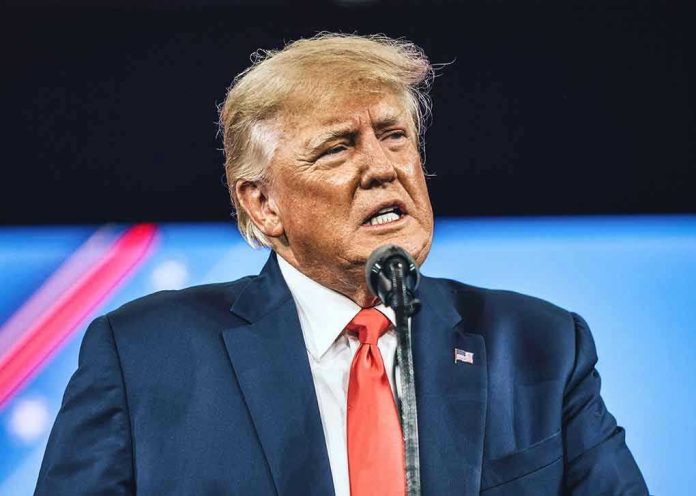
The president’s demand to free a convicted election official has ignited a constitutional showdown between federal power and state sovereignty that could reshape how America handles election crimes.
Story Snapshot
- Trump publicly demands release of Tina Peters, Colorado clerk convicted of seven felonies for breaching election equipment
- Federal authorities request Peters’ transfer from state custody, but Colorado officials refuse to comply
- Peters became a symbol in election denial circles after allowing unauthorized access to voting machines in 2021
- The case highlights limits of presidential pardons in state criminal matters and ongoing tensions over election integrity
The Whistleblower Who Broke the Law
Tina Peters believed she was saving democracy when she allowed unauthorized access to Mesa County’s voting equipment in May 2021. The former Colorado county clerk permitted an associate of MyPillow CEO Mike Lindell to copy hard drive data from voting machines, claiming she needed to expose alleged fraud in the 2020 election. Instead, her actions compromised election security and landed her in state prison with seven felony convictions.
"Trump calls for disgraced election official linked to his ‘Big Lie’ to be freed – as Colorado officials dig their heels in" – The Independent #SmartNews https://t.co/vVmnnhpJCY
— Republicans For Better Government (@rep4bettergovt) November 24, 2025
Peters’ case became a rallying cry for election denialists who viewed her as a patriotic whistleblower persecuted for seeking truth. State officials saw something entirely different: a rogue election administrator who violated her oath and endangered the very systems she was sworn to protect. The breach forced Colorado to decertify voting machines and spend taxpayer money on replacements.
Presidential Intervention Meets State Resistance
Trump’s intervention in November 2025 transformed Peters’ case from a local criminal matter into a national constitutional crisis. His Truth Social post demanding her freedom coincided with a mysterious federal request to transfer Peters from state to federal custody. The timing raised questions about whether Trump was coordinating with federal authorities or simply capitalizing on an opportunity to reinforce his election fraud narrative.
Colorado Governor Jared Polis and other state officials immediately rejected the federal transfer request, setting up a confrontation over state sovereignty in criminal justice matters. Their refusal highlighted a fundamental limitation of Trump’s power: presidential pardons only apply to federal crimes, not state convictions. Peters’ felonies were prosecuted under Colorado law, placing them beyond the reach of federal clemency.
The Broader Battle Over Election Integrity
Peters’ conviction represented more than one official’s misconduct; it symbolized the dangerous intersection of partisan politics and election administration. Mesa County District Attorney Daniel Rubinstein, who prosecuted the case, emphasized its non-political nature despite Peters’ claims of persecution. The jury’s guilty verdict on seven felony counts validated concerns about election officials who prioritize ideology over security protocols.
The case illuminated a troubling trend of local officials embracing election denialism, sometimes at the cost of actual election security. While Peters and her supporters framed her actions as necessary to expose fraud, election security experts warned that such breaches create genuine vulnerabilities and undermine public trust. The irony was stark: efforts to “protect” elections were actually endangering them.
Sources:
How a Biased Election Official Became a Cause Célèbre
Colorado Gov. Jared Polis won’t transfer Tina Peters to federal custody
Mesa County DA reflects on Tina Peters case
What Happens When An Election Official Believes The Big Lie?












